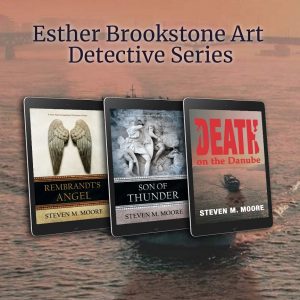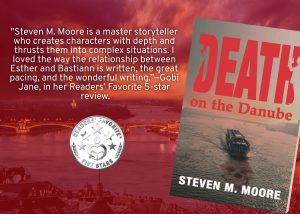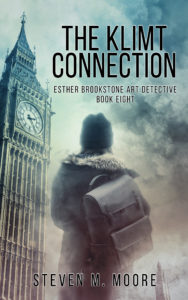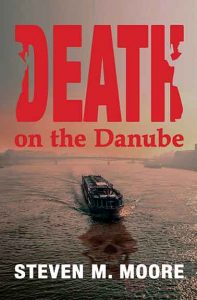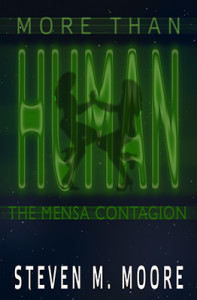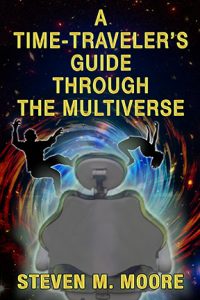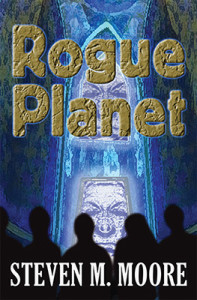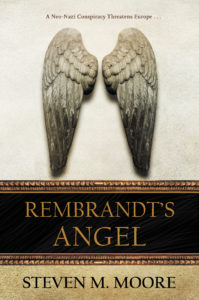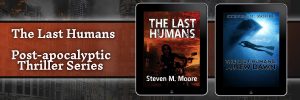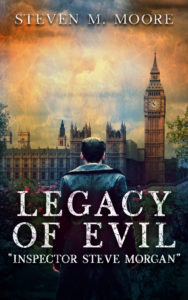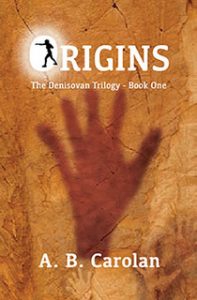How’d this happen?
August 31st, 2022I had a chuckle when I saw a new Prevagen commercial not long ago. (Yeah, I watch network TV, mainly because I don’t have streaming video and no streaming-video service has all the programs I want, often excluding some network TV shows I enjoy.) A woman in the commercial starts things off by saying she’s written three novels. I guess the viewer is supposed to think that the memory supplement allowed her to do that? Or, it cured her writer’s block? Not likely. Studies have shown that it’s no better than a placebo. I immediately wondered if I could get a nice juicy contract from the OTC supplement’s manufacturers (OTC because in that way there are no FDA controls, of course) because I’ve written more than three novels. (You can count the number if you have nothing better to do—see the “Books & Short Stories” web page. Like the number of words in a manuscript, the number of my stories isn’t something I worry about. As long as I can feed my addiction to storytelling, numbers are irrelevant.)
I wouldn’t sign that contract, of course. Unlike old movie stars and ancient athletes out to scam seniors on TV with offers for life insurance, Medicare Advantage plans, Prevagen and similar supplements like ED or testosterone pills (that’s mostly cable), I’ll not push any product, especially if I don’t use it. (You’ll find some services and retailers mentioned on my web pages here. They are places I’ve used to buy things or services who’ve helped me, so I can give them a recommendation as a satisfied customer, but it’s only a recommendation.) And, although I might resemble an old silverback (I don’t drag my knuckles like some politicians, though), I won’t pound my chest to celebrate how many novels I’ve written.
I still ask myself, though, how did this happen? Sue Grafton never made it to Z; and Harper Lee only wrote one novel, as far as I’m concerned. Lee’s will probably be remembered longer than any of Grafton’s formulaic novels (I might have stopped at B or C—I can’t remember—and I certainly don’t remember the subject matter of those first novels). In any case, the number’s not important, right? Lasting quality might be, but even Lee’s masterpiece won’t be remembered after a few more decades except by erudite professors of literature. While quantity and fame are ephemeral, and the number of copies sold is important to publishers and authors wanting to make a living writing, I look at book publishing more selfishly: I write novels because I love storytelling!
Of course, that doesn’t answer the title’s question without some qualification: Storytelling is such a turn-on that I’m completely addicted to it now. Publishing my stories is more an afterthought relative to the writing, and I’ve taken the easy way out to do it: Most of my novels have been self-published. (See my earlier article “Is traditional publishing for you?” for more about that choice—or my little course “Writing Fiction,” available as a free PDF download.) Hell, two of my novels are free (see the “Free Stuff & Contests” web page for all these free PDF downloads), so publishing them wasn’t even an afterthought! I just had to save the MS Word manuscripts as PDFs.
While not even Grafton has my number of novels, I’d like to believe that she and Harper Lee shared my obsession with storytelling. I also have no way of knowing whether either author had more stories squirreled away that didn’t see the light of day. If they did, more power to them. I do too. For example, my first novel written the summer I turned thirteen ended up in the trash can when I went off to college, and I’ve never publicly offered many of my stories.
So, you now know how I produced all those novels. I’m always writing now, not because I want to make money but because I love storytelling. Hopefully I can keep doing it for a long time!
***
Comments are always welcome. (Please follow the rules listed on my “Join the Conversation” web page. If you don’t, your comment is classified as spam.)
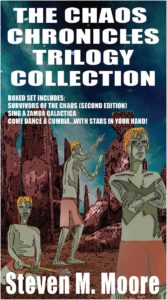 The Chaos Chronicles Trilogy Collection. This special 99-cent sale at Smashwords is better than my previous ones! This ebook bundle contains three novels: Survivors of the Chaos, Sing a Zamba Galactica, and Come Dance a Cumbia…with Stars in Your Hand! You start your mind-blowing journey on a future Earth run by international mega-corporations and policed by their mercenaries, but a clever director of the interplanetary space agency refurbishes three long-haul space rigs and uses them to send colonists off to nearby stars. Those colonies become the salvation for humanity as human beings team up with good ETs to battle bad ones…and a collective super-intelligence that’s a bit ambivalent as a villain. But the worst enemy, a human, is yet to come; if this is my Foundation trilogy, he’s my Mule. Spanning thousands of years of future near-Earth history, these adventures in space and time will give you hours of sci-fi mysteries and thrills. (Use the promo code PQ32A at checkout if the sale price doesn’t appear with the book.)
The Chaos Chronicles Trilogy Collection. This special 99-cent sale at Smashwords is better than my previous ones! This ebook bundle contains three novels: Survivors of the Chaos, Sing a Zamba Galactica, and Come Dance a Cumbia…with Stars in Your Hand! You start your mind-blowing journey on a future Earth run by international mega-corporations and policed by their mercenaries, but a clever director of the interplanetary space agency refurbishes three long-haul space rigs and uses them to send colonists off to nearby stars. Those colonies become the salvation for humanity as human beings team up with good ETs to battle bad ones…and a collective super-intelligence that’s a bit ambivalent as a villain. But the worst enemy, a human, is yet to come; if this is my Foundation trilogy, he’s my Mule. Spanning thousands of years of future near-Earth history, these adventures in space and time will give you hours of sci-fi mysteries and thrills. (Use the promo code PQ32A at checkout if the sale price doesn’t appear with the book.)
Around the world and to the stars! In libris libertas!


